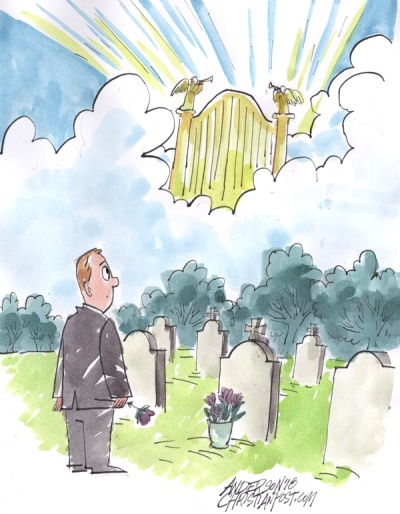3 debates surrounding the crucifixion
2. Jesus went to Heaven or Hell on the day He died
The hours between the moment of Jesus' death and the moment of His resurrection, known as Holy Saturday, have been subject to intense scrutiny over the centuries.
In liturgical churches where congregants regularly say the Nicene or Apostles' creeds, Christians confess that after He was crucified Jesus "descended into hell." This phrase first appeared in the creed in the middle of the 3rd century.

And yet, when Jesus is dying on the cross, one of the men who was hung next to Him appeals to Him to remember him when he comes into His Kingdom. Jesus then replies: "Today you will be with me in paradise."
That comment has prompted some to believe that Jesus went to Heaven the day he died. But countering that, many point to John 20:17, where Jesus said, “Do not hold on to me, for I have not yet ascended to the Father. Go instead to my brothers and tell them, ‘I am ascending to my Father and your Father, to my God and your God.’”
In 1 Peter 3:19, it is noted that “this Jesus, who by the same spirit by which he is raised from the dead goes and preaches to the lost spirits in prison,” which is a portion of Scripture most often cited as evidence proving that Christ, soon after He died, did indeed descend into "hell."
Similarly, 1 Peter 4:6 is also referenced in this context: "For this is the reason the gospel was preached even to those who are now dead, so that they might be judged according to human standards in regard to the body, but live according to God in regard to the spirit."
Whether this was to experience the depths of suffering in "hell" and provide a full atonement for sin — a claim disputed by many in light of Jesus saying "it is finished" on the cross — or to free the souls held there from ages past, the details of how and for what Jesus "descended into hell" are not spelled out in Scripture with precision. The phrase reflects a subsequent theological development in church tradition.
The passages in 1 Peter are indeed very difficult, McDermott noted, "but the [church] Fathers believed it provided answers to the question of what happens to those who don’t hear the Gospel before they die."
The verses suggest "that God is just and fair, in His own way and time reaching those who have not heard with what they need to hear," he said, noting that Martin Luther claimed that on Holy Saturday Jesus went to proclaim His victory and rescued those that were His.
"The implication is that the rescued were not the damned in Hell but those who waited in a Hades-like realm because the Messiah had not yet come," McDermott said.
Many theologians argue that "hell" should actually be translated as "sheol," or the place of the dead — a temporary place until the final judgment.




























